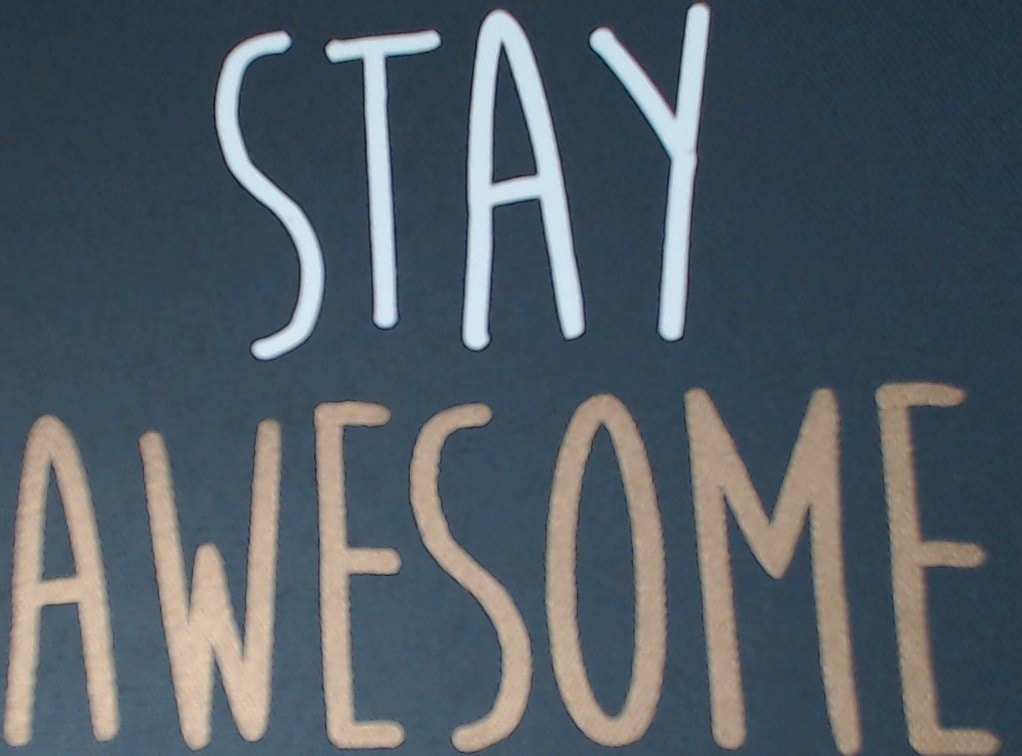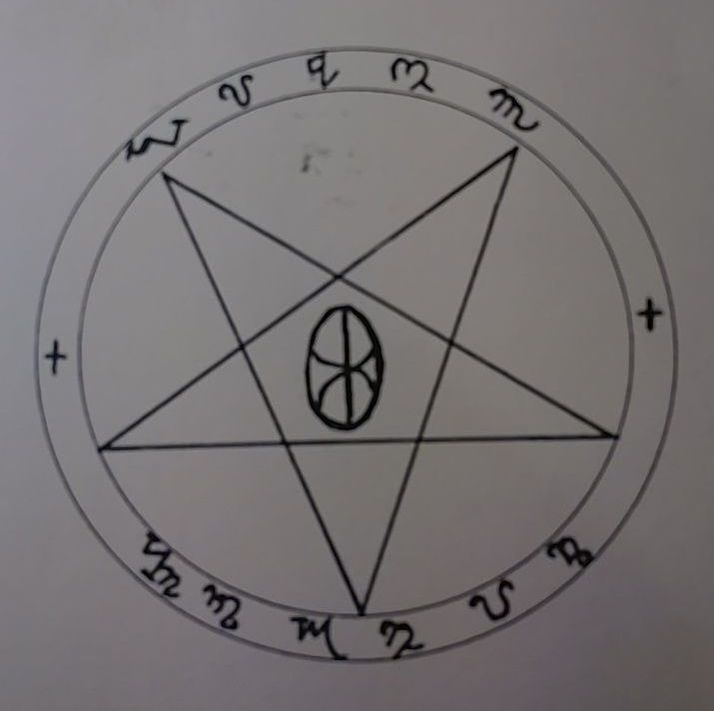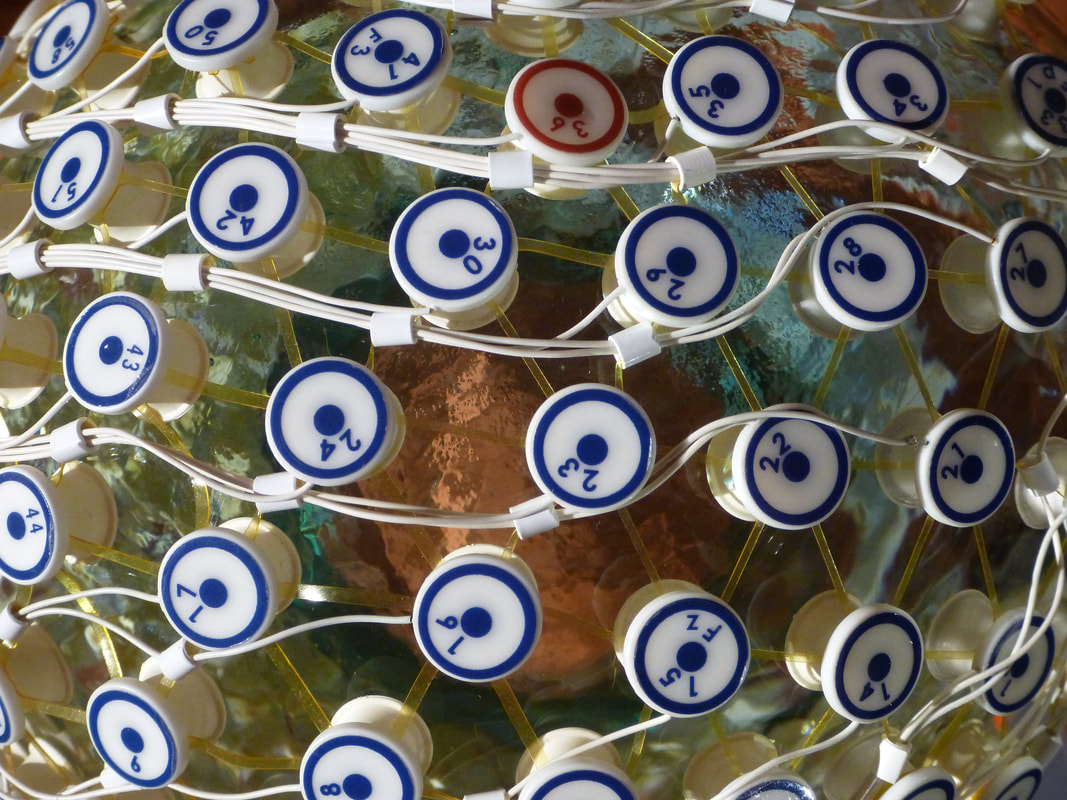The Thursday Thesis - 28/12/2017 Well, that was 2017. So, how was it for you? Did you keep your phoney-baloney New Year’s Resolutions, or were they just too much trouble? Research shows that the vast majority of people who make New Year Resolutions fail to keep them within the first two weeks: this will come as no surprise to you, because you and I have both done it, haven’t we? And the chances are that we will do it again...and again... We might even have noticed that New Year’s Resolutions don’t work. It’s no big deal, and it’s no surprise to US!! I propose that we both give New Year’s Resolutions The Finger, and figure out something that actually works better. I’ve made a start, and here’s what I came up with: if you want to change, there is no better time to start than at midnight. By “midnight” I mean any midnight – common or garden variety midnight - not just January 31st. That’s because midnight is the tipping point of time: it’s when today becomes yesterday and tomorrow is no longer an unfulfilled promise, just out of reach. Time “tips” over at midnight every single day, 365 days every year – how did we miss that fact and settle for New Year’s Eve as the very best day to make changes? Why only one day? Come on, now: if you did something once a year would it become any easier? What if you did that thing every single midnight? If you have just one attempt and you blow it, then it’s all over for another year. Now imagine you have another 364 goes at it – a whole 365 chances to make that change you want in your life... Remember that you only need it to work once... How do you rate your chances of hitting the target now that you’ve got another 364 extra shots at it? To make A New Year’s Resolution might be a massive mistake, because it’s a one-shot deal: it’s shit or bust, make or break. Give me one chance every year to get what I want and I’ll take it, if that’s the only offer there is. But the reality is that there are always 365 chances on the table, and I am going to take them all: how about you? I’m going to seize 365 of those 365 chances to make choices about how I live, work and love – and I only need one of those chances to work – just like you do. So, how are you doing today? Share your Awesomeness! .Please Like and Share The Thursday ThoughtCast with your friends, family, and anyone else. I’d love to hear your comments, along with any ideas you’d care to hurl at me. [email protected]
0 Comments
Abracadabra!
The Thursday Thesis - 21/12/2017 And with a word, it came to pass... Just like in fairytales, words are truly magical. Though nobody knows for sure where it came from, the magic word “Abracadabra” has been around for a very long time – at least since the Second Century. The frontrunners for its origins are the Hebrew "I will create as I speak" and the Aramaic "I create like the word". Whichever one of these you prefer, the underlying principle is this – words create the world. When I’m teaching my guitar students, working with my coaching clients, negotiating with someone in a business deal or just talking with a friend, I’m listening closely; not just to the meaning they are putting across to me, but to words they are saying. Why would I pay close attention to the actual words? Because the words we use are a map of our thoughts and the way we think about the world. It’s amazing to think that whatever you or I choose to say is going to declare our whole philosophy and way of being to anyone who is really listening. Say “Life is hard”, and guess what? What if you said “Life is an endless dance”? Or perhaps “Life is a game, and I’m enjoying playing”? Do each of those phrases give you a clue as to how the person speaking them lives on the inside? Abracadabra! Here’s the good news – it doesn’t matter whether you select the words first or develop the mindset which generates the words first. It’s a circular process, so you can begin anywhere. Today’s fun game is to begin to notice how you say what you think you’re saying. What words do you use when someone says “hello” and asks how you’re doing. One of my dearest friends always responds that she’s “plodding on”... Come on! What if she said “I’m awesome today; thanks for asking”? That’s a whole different vibe isn’t it? Is my friend going to feel differently when she tells the world that she’s awesome, rather than plodding on? Of course. We each create our own version of reality, because there is only our interpretation of external events – all of which we filter through our own prejudices and preconceptions. What I’m suggesting here is that we all notice – through our words – what our filters might be and how we might enjoy tweaking them for more fun, success, happiness, closeness, wealth, or anything else we’d care to have more of. So, how are you doing today? Tell me, in the comments box below. Share your Awesomeness!
The Thursday Thesis - 14/12/2017 I can almost hear you yawn when I say the word “system”, which is odd because systems are your mind’s natural way to streamline everyday life, taking repetitive events and movements from being reactions to random events through to effortless unconscious processing of known sequences. The most common example of this process for most people is learning to drive. First time behind the wheel and there’s a terrifying amount to take in: your instructor, the pedals, seat adjustment, mirrors, lights, gearshift, handbrake, ignition... and that’s before you even begin to move and encounter the world outside of the car! So, at first you are incredibly lumpy – you grind the gears, stall, lurch and bumble around at low speed; all of the time on the edge of your seat and desperate not to hit anything. In the early sessions your brain is dealing with every operation on a conscious level because everything is new and there’s no system to handle that amount of data. But, over time, your performance of the same actions in precisely the same way causes something wonderful to happen: your brain changes to improve your performance. Yes, your big ol’ brain is always changing – it actually re-shapes itself to optimise the way it processes data – we call it neuroplasticity. Ian Robertson, a neuroscientist, describes the brain as a “trembling web” in his book Mind Sculpture (link below), and it’s this mutability that is the reason people can often recover from injury or damage to the brain. So, the more you do something, the more your brain assigns and connects nerve cells to perform the activity better: what you do, regularly, sculpts your brain into an elegant and efficient system which is custom-made just for you, by you. Here’s how it works: When something is new to us, we process the data in our working memory – the short term electrical part of our three-stage memory system. Storage here lasts only a few seconds, unless there is an unusually strong associated emotional component, as in cases of trauma. With ongoing repetition of the action, our brain passes the increasingly-familiar action across to the chemical part of our memory system, conserving the scarce and precious working memory for more immediate and potentially life-threatening occurrences. Keep on doing that same thing in the same way, and something truly magical happens: your brain “grooves-in” neural pathways to enable a physical memory track to be formed, allowing rapid recall and performance of the task that was once so clumsy. If you’ve been driving for a years, you probably don’t even think about it anymore. That’s because the act of driving has been encoded into the physical structure of your brain: in a very real sense, driving has become a part of who you are. What a system! As a guitar teacher, this is exactly the approach I take with my students. I know that when a player performs the same technique with precisely the same finger and hand movements, every single time, they will encode the technique more deeply and more quickly than if they use a variety of finger movements. Without that clarity and focus of consistent repetition, there is no system for the player, so every piece of music is processed de novo, and the player struggles with a shifting and random action. Consistency forms habits, and habits are your brain’s default operating system. Change your habits, and you will change your brain: change your brain, and you will change your life. . © Neil Cowmeadow 2017
Like and Share The Thursday Thesis with your friends, family, and your cat. I’d love to hear your comments, along with any ideas you’d care to hurl at me. [email protected]
The Thursday Thesis 7/12/2017
Faster is Easier... When I discovered barefoot running a few years ago I read a wonderful book called “Born to Run: The Hidden Tribe, the Ultra-Runners, and the Greatest Race the World Has Never Seen” by Christopher MacDougal (there’s a link to it at the bottom of The Thesis) The book caused me to throw out my expensive bouncy “running shoes” and - by using what nature had given me - I was able to reclaim running, just for fun. Before barefoot, I could pound out a half mile and my knees would start to hurt from the stomp, stomp, stomp of my feet on the road. That was a real problem, and I’d never really understood why – after all, I’d bought Nike’s finest, tried the best of Adidas, Asics, New Balance and all the rest. None of them really helped, so I came to the conclusion that I was the problem. I reasoned that all those billions of dollars of running shoe research, the stability devices, airbags, were doing their best to protect me, so I was obviously defective: I was the problem. But the problem wasn’t me – it was my conventional running shoes. That piece of the puzzle slipped into place with a click one night as I ran with my loony-tune running buddy. It was dark in the gorge as we ran beside the river. Somewhere off to the right an owl screeched , sending echoes into the inky sky. Then something else caught my ear. It wasn’t the steady thump-thump-thump of my buddy’s shoes on the tarmac that I heard – it was the silence of my own footfalls. According to the Apache natives of the USA “The best runners leave no tracks”, and I’d like to add to that “...and make no sound”. And it was all in the book: the injuries, the shoes, and the silence. The author’s coach told him not to worry about speed, that would take care of itself – no coach I ever met told a trainee that! But the coach wasn’t kidding. His approach was radical - revolutionary, even. He advised runners first to make it easy, because if that was all they got, it wasn’t so bad. Then he said “now make it smoooooooooth.......” Of course, if it’s easy and you are smooth, you will be fast – won’t you? But when it’s easy and smooth your feet seem to caress the ground beneath them, reach out to touch it, and ease into contact with it, making almost no sound. That’s our evolutionary advantage taking over: easy, smooth....fast... It’s the same with my guitar students – easy...smooth...fast... That’s mastery writ large: easy...smooth...fast... So I teach them to lighten-up and make it easy, then I invite them to make it smooth and elegant, then to notice how much more quickly they can play. Easy, smooth, fast. Works every time. Happy Thursday! Neil Book link: http://amzn.to/2AWWssP |
Share it with your friends
It's Like This...The Thursday Thesis shares ideas which I think are worth spreading. Archives
May 2022
Categories
All
All content on these pages is the intellectual property of the author, unless otherwise stated, and may not be used in any form or reproduced under any circumstances without the authors permission.
|




 RSS Feed
RSS Feed